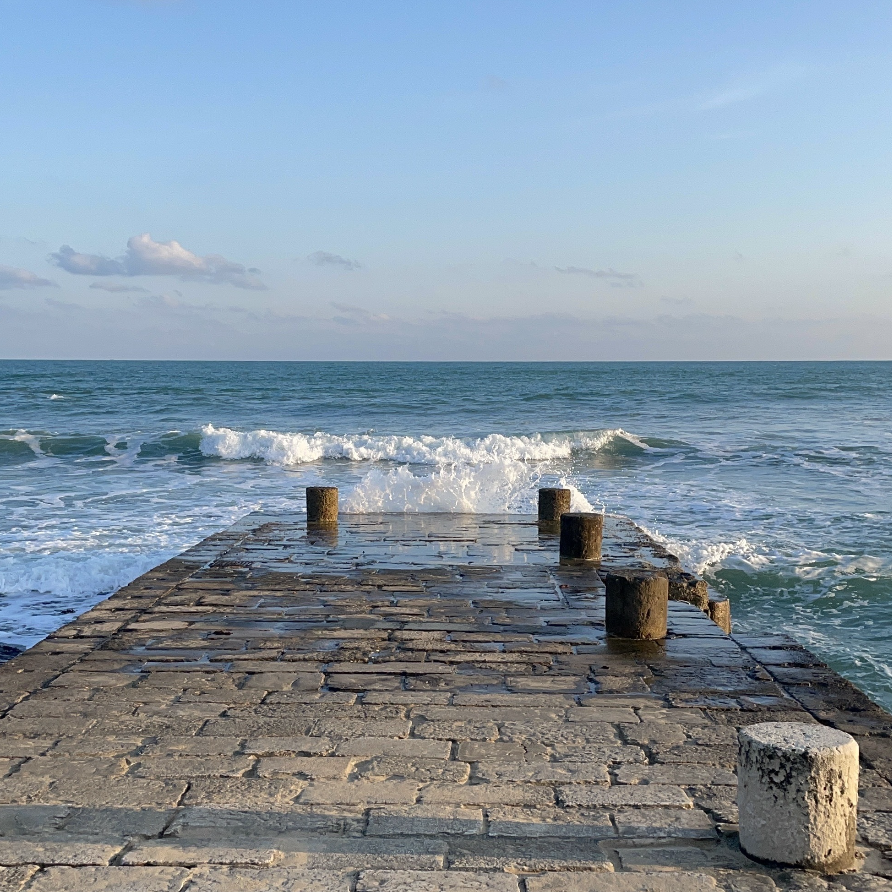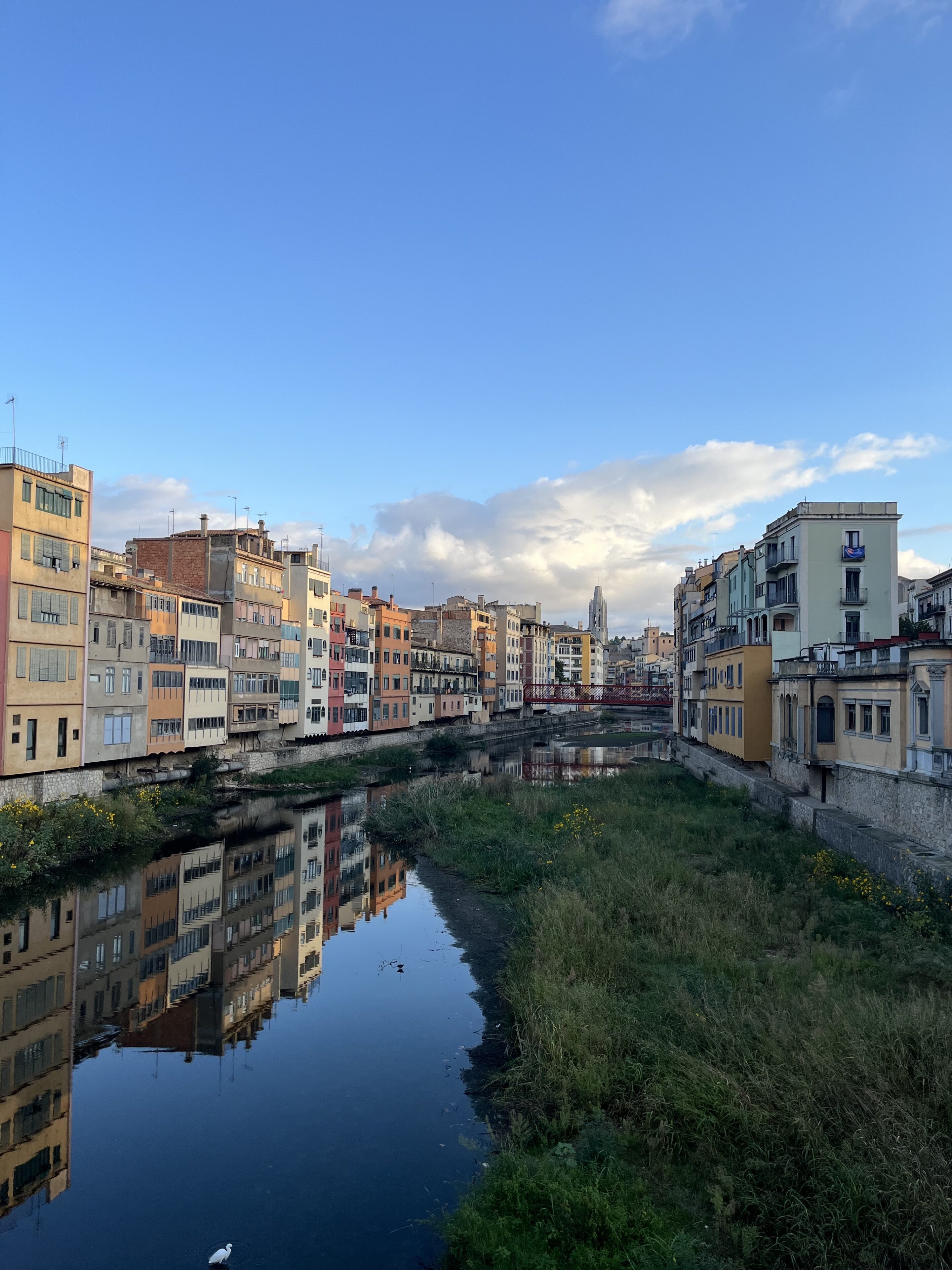Remote work from Italy: Lead AI Consultant takes his meetings under the palm trees
Lead AI Consultant Jonas Pomoell works remotely from Italy, showcasing the flexibility of expert work at HiQ. A shortened workweek abroad demands transparency and self-governing, but also creates space to reflect on what one truly wants from work and life.

Just Another Day in the Life of an AI Consultant: a flock of sheep interrupts a thought in a Teams meeting.
A jovial Italian offers life advice. Lava flows down the slope of Mount Etna just meters away.

Jonas Pomoell, Lead AI Consultant at HiQ, joins a Teams meeting from southwestern Sardinia. The sea is turquoise, the beaches white. Goats graze in the background of the call.
“Yesterday my spouse and I hiked around the southeastern tip. Afterwards, we tossed our shoes aside and waded knee-deep through the water to a deserted beach hidden behind cliffs, with a chilled bottle of rosé in hand,” he recounts.
Jonas works a three-day week remotely from Italy. His office fits into a camper van, shared with his spouse and Frida, a fox terrier. All that’s really needed is a good internet connection. Remote work is familiar to Jonas — for most of his HiQ career, he’s worked off-site.
Remote work demands a lot from the team: “You need to build trust and transparency”
The reason for heading abroad was classic: after a terrible, dark winter, it even snowed on May Day. When Jonas’s car got stuck in the snow in Nuuksio National Park, he knew the next winter would be spent “where the cypresses smell sweet even in winter.”
But Italy isn’t all hiking and beach days. Remote work and a shortened workweek require stronger self-leadership, transparency around tasks, and trust among colleagues.
“It’s essential to set boundaries, communicate them clearly, and stick to them. Finding balance can be tricky — you want to give as much as you can, but with reduced hours, even a one-hour meeting takes up a large portion of the week. Weekly priorities must be determined case by case to ensure others’ work progresses even when I’m off,” Jonas explains.


Isolation, loneliness, and uncertainty about the value of one’s contribution are familiar feelings when the work environment is far from the rest of the team. Jonas has come up with a simple way to maintain a sense of community.
“The weekly meetings of the AI, Data and Automation team unfortunately landed on my days off, so I started sending them video greetings. I get to see the comments on the Slack channel when I return to work. Even though I work alone under the palm trees, I still feel like I’m part of the team.”
Nomadic life isn’t just about freedom: “It’s learning to let go”
Jonas doesn’t have a fixed itinerary; the journey follows their own rhythm. The goal is to find good conditions for remote work, as well as beautiful nature and hiking opportunities nearby.
Longer stops at camper sites are sometimes necessary, as constant movement can, according to Jonas, eventually become overwhelming.
“Traveling freely means both freedom and constant practice in letting go. We don’t return to the same place twice, so you have to accept that part of the journey is over. At the same time, the next chapter is still to come — and full of exciting possibilities.”

views throughout the trip, including in the canyon itself. The third section would
have required climbing gear. The place where we encountered the most ticks during
the entire trip.” Photo: Jonas Pomoell
Can anyone just go? “A culture encouraging discussion is key”
Working remotely from abroad requires careful planning even before getting approval. Jonas prepared a thorough proposal addressing potential safety and technical risks.
A long career at HiQ, a senior role, and past success with similar remote setups helped his case, but HiQ’s flexible work culture was just as crucial.
“The answer could have been no, but HiQ approached my proposal with an open mind. I truly value the support I received throughout the process from my manager Mikko, Tiina from recruitment and employer branding, and our CEO Minna’s positive attitude. It was easy to bring up the idea, I didn’t have to hesitate to speak up.”

mentally running through a to-do list. The feeling of truly living in the moment is
unreal. That experience was also one of the reasons I applied for a shortened
workweek.” Photo: Jonas Pomoell
Life can’t be escaped abroad: “Remote work creates space for reflection”
If you go abroad hoping to instantly escape frustration or dissatisfaction at home, you’ll be disappointed. Jonas says remote work doesn’t solve daily life’s problems, it just changes the scenery.
“Working remotely abroad isn’t a getaway, it’s an opportunity for self-reflection. A new environment creates space to process and untangle thoughts in peace. Without the usual distractions and noise of daily life, you’re almost forced into it.”
When life isn’t filled with office days, hobbies, or evenings with a Playstation, there’s suddenly room to consider things often pushed aside: What do I actually want from work and life? What brings daily satisfaction? What does success mean to me?
Jonas’s thought is interrupted, but not by introspection. It’s Italy, after all:
“They just let sheep onto the road. An absolutely insane amount of sheep!”

“Non c’è danza senza musica” – There’s no dance without music
We were spending time in a small village when we suddenly ran out of gas. Fabrizio, the cheerful local who ran the camper stop, helped us order a new bottle.
I tried to pay for it in the middle of my workday, but Fabrizio shooed me back to work. I joked that I had to, in order to be able to pay him in the first place. Fabrizio replied: “Non c’è danza senza musica”, “there’s no dance without music” – meaning that there’s no adventure either, without the work that makes it possible.
The saying perfectly captured both the moment and the Italian mindset: some things are inherently connected, and one simply doesn’t work without the other.

